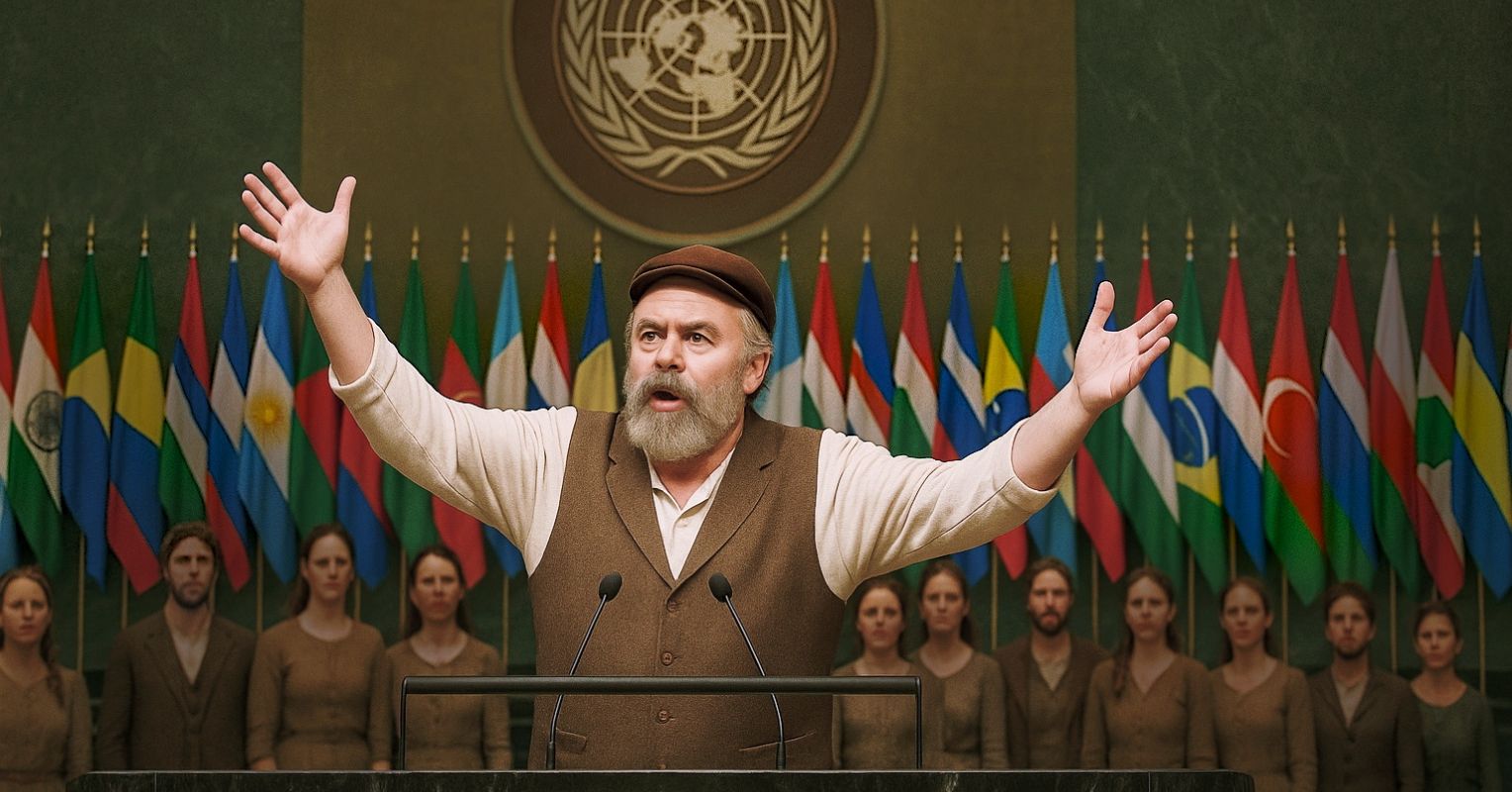Every week in my psychology practice, I meet people from around the world who share stories marked by loss, hope, fear, love, displacement, and resilience. Listening to them has deepened my understanding of how culture and tradition influence identity, relationships, and a sense of belonging. Yet I also see how these very foundations can be used to justify war, leaving individuals and families caught in an impossible dilemma: whether to uphold long-held customs and beliefs or to challenge them in order to stay true to the people and values that matter most to them.
Through this lens—and against the backdrop of ongoing global conflicts—I recently reflected on the story of Tevye and his family, who lived in a small Jewish village in Imperial Russia. I sometimes find that a story or metaphor helps me clarify what a client’s struggle may be pointing to. Tevye is the protagonist in Sholem Aleichem’s story “Tevye the Dairyman” (Mann, 2022; Aleichem, 1996), which was later adapted into the celebrated musical “Fiddler on the Roof” (Stein, 2007; Solomon, 2013). It is a tale of family, faith, and the struggle to preserve tradition and belief in a changing world.
The Impasse: Tevye and the Crisis of Conflict
Tevye’s final refusal to bless his daughter’s marriage is not only an act of religious conviction but also a reflection of the internal breakdown that happens when it feels impossible to hold both love and tradition at the same time.
Although his story isn’t about war, his struggle mirrors the inner conflicts of those whose lives have been destabilised by the weight of tradition and cultural expectations in times of war. His words—“There is no other hand”—capture the moment when every other choice seems to betray something sacrosanct.
In the therapy room, this same paralysis often appears in those who have fled or survived war. They do not leave the conflict behind when they cross a border; instead, they carry its burden within themselves. The entrenched oppositions of war—questions of who is right and who is wrong—become internalized. For many, the impasse of war shows up as family ruptures, cultural dislocation, or the struggle to reconcile competing loyalties. A geopolitical stalemate becomes a personal one, played out in moments of alienation, mistrust, and grief.
Confined by Hardened Narratives
Globally, this futility manifests in protracted conflicts where convictions have calcified into absolutes. In places like Gaza, Ukraine, Syria, and Yemen, for example, dialogue seems impossible, leaving people trapped within hardened narratives. At the time of writing, I read an article in The New Yorker titled “Treating Gaza’s Collective Trauma” (Mhawish, 2025). It depicts children reenacting airstrikes, grieving families, and people struggling with trauma so intense that even seasoned clinicians are reduced to silence. The cost is carried by the most vulnerable.
When the conditions for dignity and dialogue are stripped away, restoration becomes nearly impossible, narratives that fuel division are fortified rather than questioned, and empathy gives way to absolutism.
Beacons and Shadows: What Helps and What Hinders
In working with people from war-torn countries, I’ve found that recovery builds over time through sustained and patient engagement. The gap between what clients want and their current situation reveals relational patterns that can either promote repair or deepen division: reaching for connection while resisting it, wanting change while fearing its cost. I refer to these as Beacons of Connection and Shadows of Division.
When examined together in therapy, they form seven relational dichotomies that are discussed in the context of the person’s struggle:
1. Belonging — Being recognised and accepted, even in difference; Separation — Withdrawing emotionally, weakening trust and understanding.
2. Empathy — The willingness to understand another’s reality without altering it; Hardness — Adopting rigidity as a defence against vulnerability.
3. Acceptance — Allowing what is real—pain, history, difference—so it can be integrated rather than resisted; Alienation — Cutting off from reality, creating distance from self, others, and what is difficult to bear.
4. Courage — Choosing to remain engaged when retreat or retaliation would be easier; Doubt — Losing faith in dialogue and the possibility of change.
5. Openness — A readiness to encounter what is not yet understood; Obstruction — Resisting progress out of fear of what change may demand.
6. Nuance — The ability to hold tension without collapsing into binary thinking; Wilfulness — Prioritising being right over the need to relate.
7. Stillness — The capacity to pause, reflect, and choose response over reaction; Struggle — Internal chaos that clouds clarity and dulls responsiveness.
These beacons and shadows serve as reflective markers that clarify what’s happening beneath the surface. By naming the shadows and nurturing the beacons, we begin the transformative work of restoring relational depth—helping clients to navigate complexity with greater self-awareness and renewed capacity for connection. It’s about keeping dialogue alive even when despair threatens to silence it.
Making Space for What Comes Next
Tevye’s struggle was existential—the collapse of a world he believed he understood. Conflict often destroys the frameworks of meaning, identity, and belonging. The task, therefore, is to create space for what can emerge when we stay present long enough to face what feels impossible. This requires the courage to sit with tension, endure uncertainty, and rebuild trust slowly and with purpose.
Understanding, rather than agreement, is the first step toward reconciliation. This distinction matters: it allows us to face difference without collapsing into division by exploring perspectives we may never adopt, histories we may not accept, and suffering we may never fully comprehend. Therapy becomes a space where these realities can be acknowledged and gradually released—not to erase the past, but to discover new ways of belonging that carry the possibility of healing into the future.
This is a disciplined hope—one that asks us to stay connected, accept difference, and embrace the slow, challenging work of peace.
To find a therapist near you, visit the Psychology Today Therapy Directory.

